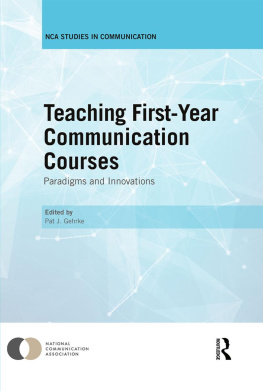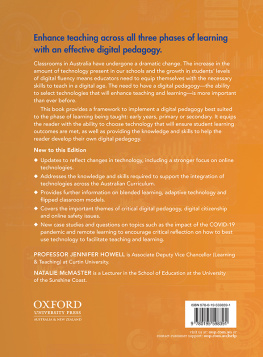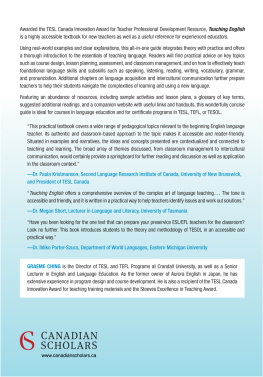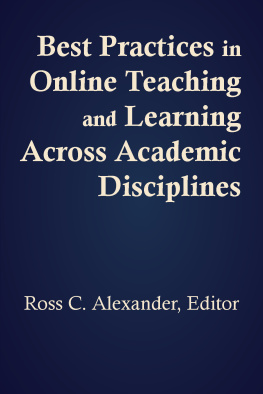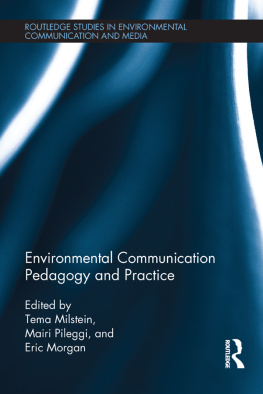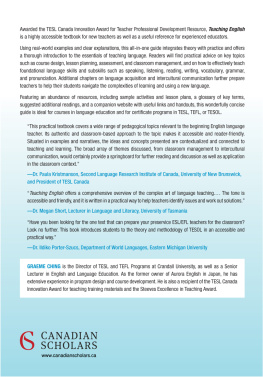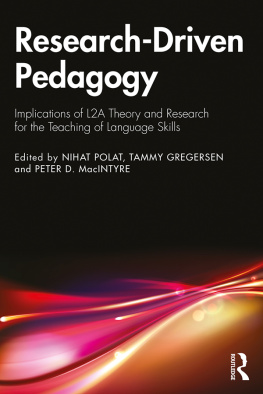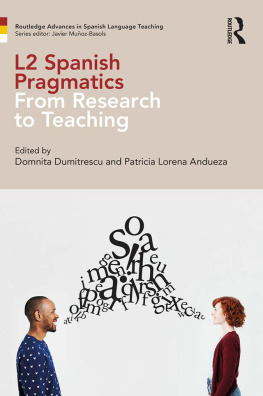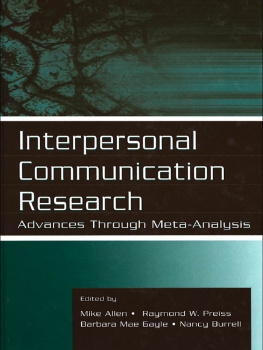Teaching First-Year
Communication Courses
In this book, eleven teacher-scholars of communication provide a robust study of the challenges and opportunities facing those who teach first-year communication courses. The first half of the volume offers paradigmatic analyses, including a survey of the ecology of the first-year course, a plea to integrate our first-year courses into our research agendas, a study of the gap between scholarship and pedagogy within rhetoric, a proposal for seven core competencies to unify the various first-year communication courses, and an argument for a critical communication paradigm. The second half details innovations in classroom practice, such as the teaching techniques of social justice pedagogues, team-based learning as a model for the public speaking course, response and feedback techniques in teaching public speaking at the University of Copenhagen, teaching online speech as a new course focused on the unique challenges of digital communication, and the role of oral interpretation and performance classes in the first-year curriculum. Finally, this volume concludes with the editors manifesto for teaching public speaking. This book was originally published as a special issue of the Review of Communication.
Pat J. Gehrke is Associate Professor in the Department of English at the University of South Carolina, USA. He has two decades of experience in teaching communication, has directed first-year communication courses, and has conducted system-wide communication competency assessments. He publishes in the history of communication studies and communication ethics, including The Ethics and Politics of Speech (2009).
Teaching First-Year
Communication Courses
In this book, eleven teacher-scholars of communication provide a robust study of the challenges and opportunities facing those who teach first-year communication courses. The first half of the volume offers paradigmatic analyses, including a survey of the ecology of the first-year course, a plea to integrate our first-year courses into our research agendas, a study of the gap between scholarship and pedagogy within rhetoric, a proposal for seven core competencies to unify the various first-year communication courses, and an argument for a critical communication paradigm. The second half details innovations in classroom practice, such as the teaching techniques of social justice pedagogues, team-based learning as a model for the public speaking course, response and feedback techniques in teaching public speaking at the University of Copenhagen, teaching online speech as a new course focused on the unique challenges of digital communication, and the role of oral interpretation and performance classes in the first-year curriculum. Finally, this volume concludes with the editors manifesto for teaching public speaking. This book was originally published as a special issue of the Review of Communication.
Pat J. Gehrke is Associate Professor in the Department of English at the University of South Carolina, USA. He has two decades of experience in teaching communication, has directed first-year communication courses, and has conducted system-wide communication competency assessments. He publishes in the history of communication studies and communication ethics, including The Ethics and Politics of Speech (2009).
First published 2017
by Routledge
2 Park Square, Milton Park, Abingdon, Oxon, OX14 4RN, UK
and by Routledge
711 Third Avenue, New York, NY 10017, USA
Routledge is an imprint of the Taylor & Francis Group, an informa business
2017 National Communication Association
All rights reserved. No part of this book may be reprinted or reproduced or utilised in any form or by any electronic, mechanical, or other means, now known or hereafter invented, including photocopying and recording, or in any information storage or retrieval system, without permission in writing from the publishers.
Trademark notice: Product or corporate names may be trademarks or registered trademarks, and are used only for identification and explanation without intent to infringe.
British Library Cataloguing in Publication Data
A catalogue record for this book is available from the British Library
ISBN 13: 978-1-138-28056-4
Typeset in Minion Pro
by RefineCatch Limited, Bungay, Suffolk
Publishers Note
The publisher accepts responsibility for any inconsistencies that may have arisen during the conversion of this book from journal articles to book chapters, namely the possible inclusion of journal terminology.
Disclaimer
Every effort has been made to contact copyright holders for their permission to reprint material in this book. The publishers would be grateful to hear from any copyright holder who is not here acknowledged and will undertake to rectify any errors or omissions in future editions of this book.
Contents
Citation Information
The chapters in this book were originally published in the Review of Communication, volume 16, issues 23 (July 2016). When citing this material, please use the original page numbering for each article, as follows:
Introduction
Introduction to special issue on teaching first-year communication courses
Pat J. Gehrke
Review of Communication, volume 16, issues 23 (July 2016) pp. 109113
Chapter 1
Understanding the ecology of the public speaking course
William Keith
Review of Communication, volume 16, issues 23 (July 2016) pp. 114124
Chapter 2
Beyond basic: developing our work in and through the introductory communication course
Deanna L. Fassett
Review of Communication, volume 16, issues 23 (July 2016) pp. 125134
Chapter 3
The gap between rhetorical education and civic discourse
Craig Rood
Review of Communication, volume 16, issues 23 (July 2016) pp. 135150
Chapter 4
The case for core competencies in introductory communication courses
Isa N. Engleberg
Review of Communication, volume 16, issues 23 (July 2016) pp. 151161
Chapter 5
An unsettled bookcase: a critical paradigmatic approach to connect theory and pedagogy
Nicholas A. Zoffel
Review of Communication, volume 16, issues 23 (July 2016) pp. 162175
Chapter 6
Socially constructing learning space: communication theory and pedagogy for social justice
Juliane Mora
Review of Communication, volume 16, issues 23 (July 2016) pp. 176191
Chapter 7
Team-based learning for the basic communication course: a transformative pedagogical approach
Luke LeFebvre
Review of Communication, volume 16, issues 23 (July 2016) pp. 192212
Chapter 8
Practices of response in public speaking the transformation of revision techniques into oral feedback
Jette Barnholdt Hansen
Review of Communication, volume 16, issues 23 (July 2016) pp. 213221
Chapter 9
Its not the same thing: considering a path forward for teaching public speaking online
Susan Ward
Review of Communication, volume 16, issues 23 (July 2016) pp. 222235
Chapter 10
The value of literature in introducing performance studies
Tracy Stephenson Shaffer
Review of Communication, volume 16, issues 23 (July 2016) pp. 236245
Epilogue
Epilogue: a manifesto for teaching public speaking

